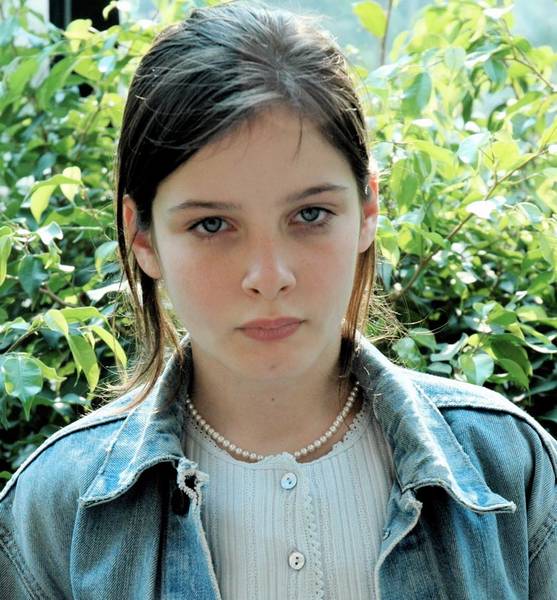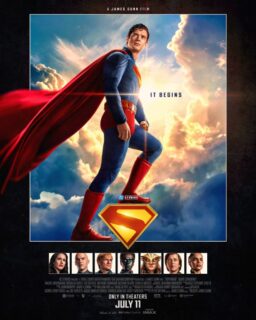TORONTO – At the halfway point of the 2005 Toronto Film Festival, one thing is clear: This is the best autumn movie season in memory. One film after another has been astonishingly good. Critics gathered in the hallways after the Varsity press screenings, talking in hushed tones as if witnesses to a miracle.
These are movies for grown-ups. Intelligent, unusual, challenging, thoughtful. We plowed through a summer of the multiplex two-week wonders, some of them good at what they wanted to do, few of them wanting to do very much. At Telluride, James Mangold, director of “Walk the Line,” told me: “Nobody wants to make a picture that depends on someone being able to ‘pull it off’.” Now here are all these movies that someone did pull off: Films that aspire to be as good as they possibly can be.
It’s a festival like this: Ang Lee shows “Brokeback Mountain” at Venice. It stars Heath Ledger and Jake Gyllenhaal as two macho ranch hands in Wyoming 35 years ago, who have a love affair and no clue about how to deal with that fact. Lee flies to Toronto. He is told to get back on a plane two hours later to fly back to Venice and accept the Golden Lion Award. Then back to Toronto. When I talk to him Monday, he is weary and happy: “I don’t know where I am, but I never know where I am. I was born in China, then my parents moved to Taiwan, where we were outsiders, then to the States, then back to China, then back here. I trust the elusive world created by movies more than anything else. I live on the other side of the screen.”
I think of “Bee Season” by Scott McGehee and David Siegel and I am astonished all over again by how an 12-year-old girl named Flora Cross, who has never acted before, carries the weight of that movie on her shoulders and holds the screen with Richard Gere and Juliette Binoche and Max Minghella, and is so powerful it’s scary. And I think, how did the directors know to take that risk? To trust their whole movie to a girl who had never acted, and who gave them something they could not have gotten any other way?
They took a chance. So did Liev Schreiber when he directed “Everything is Illuminated,” starring Elijah Wood as a solemn young man who goes to the Ukraine to thank the woman who saved his grandfather’s life, and meets two half-crazy guides who specialize in “tours of dead Jews.” There is the old grandfather (Boris Leskin) and his grandson (Eugene Hutz), an actor who sings with a gypsy punk band and is in his first movie. The film begins as a screwball comedy and finds a trajectory straight to the beating heart of truth, and how Schreiber controls that tonal shift in his directorial debut is hard to say, but he does. I went to see the film a second time because I felt I had been paying the wrong kind of attention when I saw a screening a month ago, and I was right about being wrong. Yes, I gave it thumbs up on TV, but I wasn’t focused on its greatness. I think it helps to see it twice, to understand the journey it takes.
Jason Reitman took a chance with ”Thank You for Smoking,” his first film. His father is the famous director Ivan. Your dad can get you hired in the movie business, but you have to be a director all on your own. His movie stars Aaron Eckhart as a lobbyist for the tobacco industry, who defends a product he knows is deadly, and at the same time tries to teach his young son what is important in life. There are broad satirical strokes and big laughs, but watch how its anger stays focused, and how its cynicism and idealism curiously sometimes seem to change places. It would have been easier to make this movie in a simple and obvious way, but Reitman at 26 is ambitious and wants to push harder and dig into tricky personal ethics.
Curtis Hanson’s “In Her Shoes” stars Cameron Diaz, Toni Collette and Shirley MacLaine (and some men) in the story of two daughters at lifelong war with one another, and a grandmother who has disappeared from their lives. I tell you the story, and you see how this could be a soppy weeper, but the movie is tough and perceptive.
MacLaine plays the grandmother as if she doesn’t know that after 70 you’re supposed to be lovable, and thinks at any age you have to be smart and practical and do the hard thing if the hard thing is right. The two sisters drive each other crazy and yet are joined in a hopeless love; hope enters by way of a blind professor who is the first person to really see Diaz, and not just her body.
I’ve already written about Philip Seymour Hoffman’s Oscar- lock with his performance in “Capote.” The problem is, there are way more than five obvious candidates in every category. To make a list is to leave out work as good as the work you mention.
Joaquin Phoenix could be nominated for “Walk the Line,” and MacLaine for “Shoes,” Ledger for “Brokeback,” Charlize Theron for “North Country,” Cillian Murphy for “Breakfast on Pluto,” Gwyneth Paltrow for “Proof” (2005), and Claire Danes for “Shopgirl” and Catherine Keener for three different pictures, and Judi Dench for “Mrs. Henderson Presents,” and think of all the earlier movies like “Lord of War,” “Junebug,” “Crash” (2005), “Broken Flowers,” “Me and You and Everyone We Know,” “Millions” and “Yes” (2005).
And then there are the popular “audience pictures” here that are delightful, like Anthony Hopkins in “The World's Fastest Indian” (2006), and “Tim Burton’s Corpse Bride,” and Dakota Fanning in “Dreamer,” the story of a girl’s fierce trust in an injured horse, and Pierce Brosnan in “Matador,” and Aishwarya Rai in “Mistress of Spices,” which has all the depth of a romance novel but is essentially an entire film about her beauty, worth seeing for her beauty alone, and if you doubt me, go to see it and try to think about anything else.
I hate this list, because it leaves out as much as it puts in. And half the festival is still to come. People talk to me or write to me about how the movies aren’t as good anymore and they can’t find anything they want to see, and I’m going to have to find a way of telling them: You’re not paying attention.












